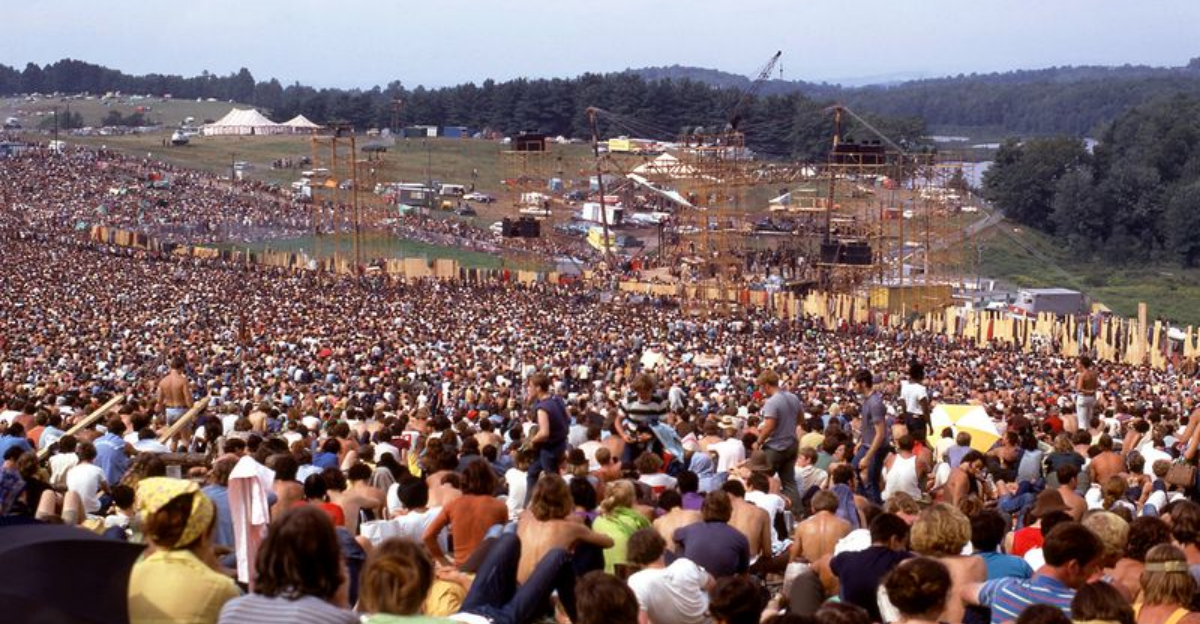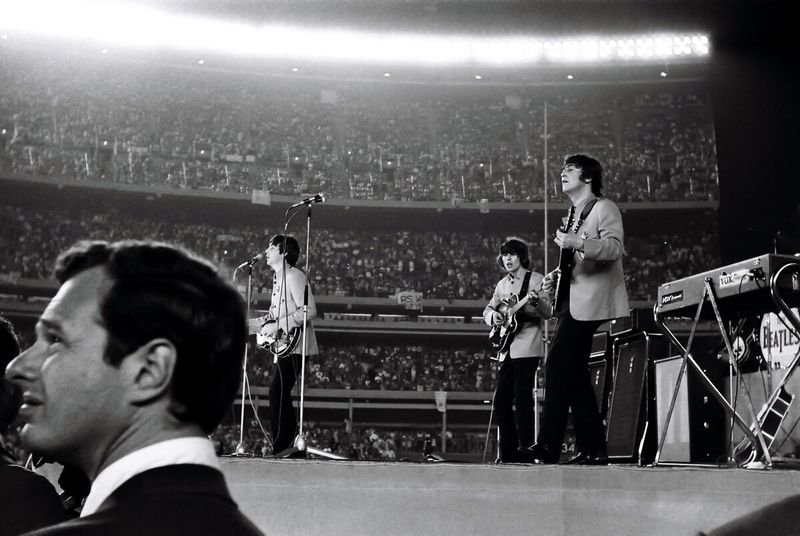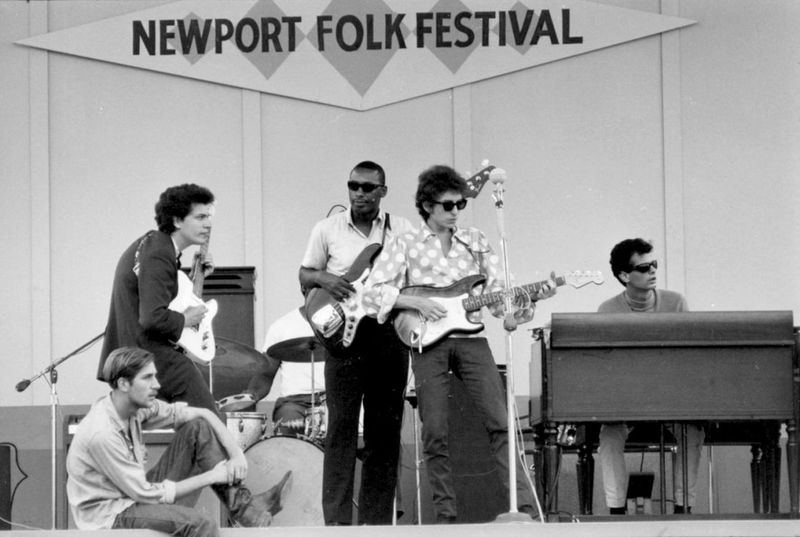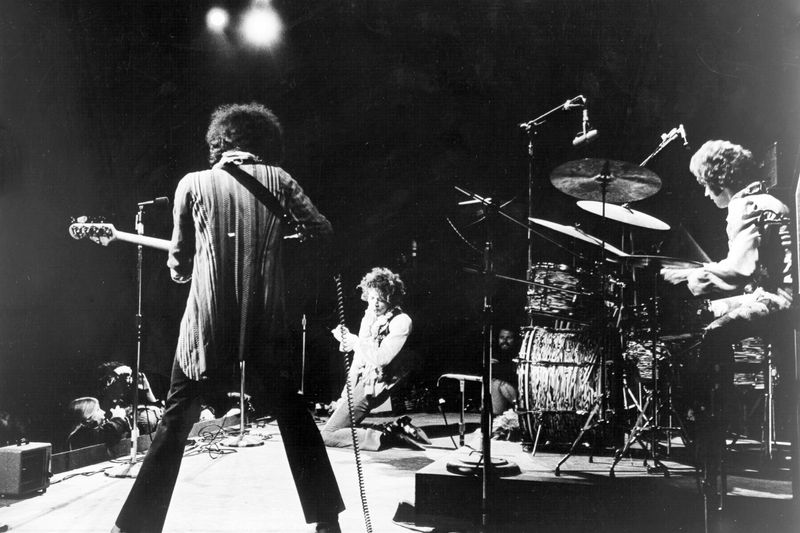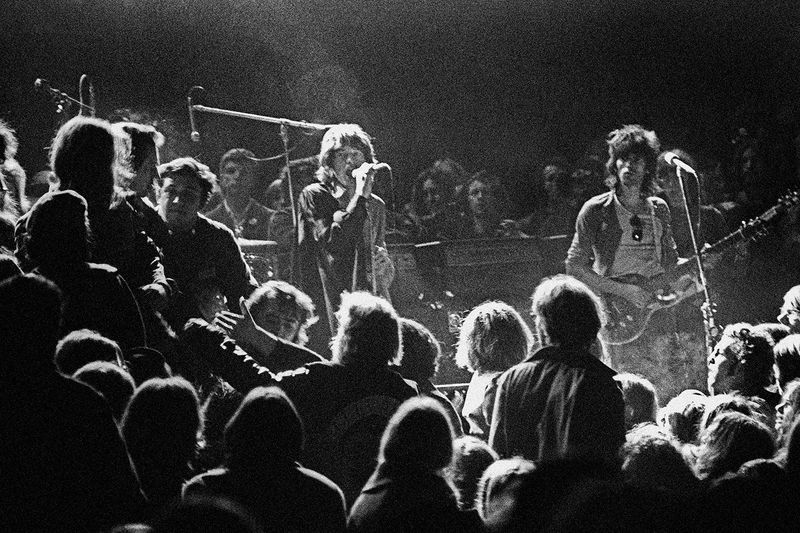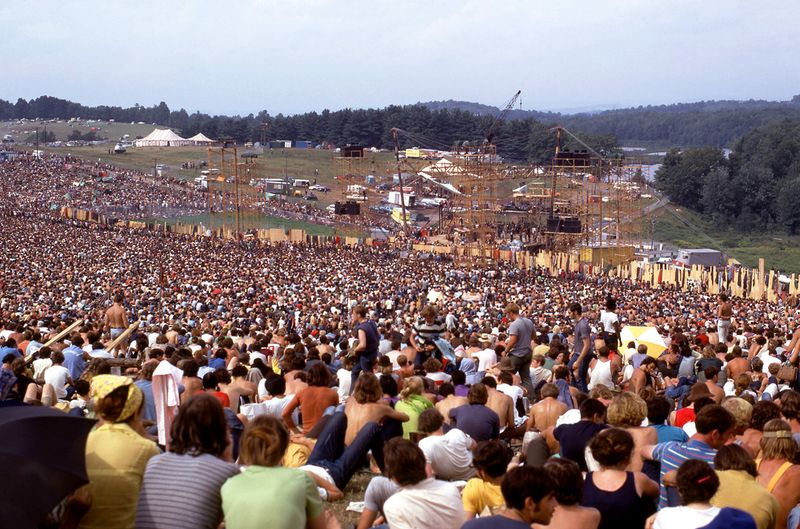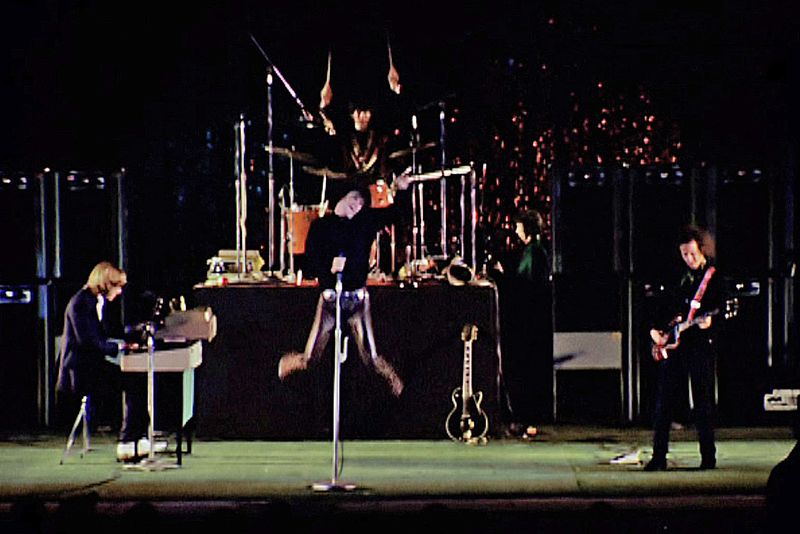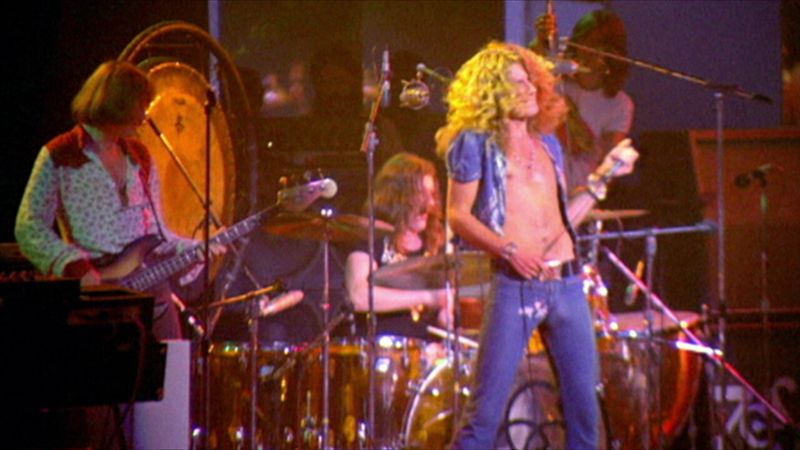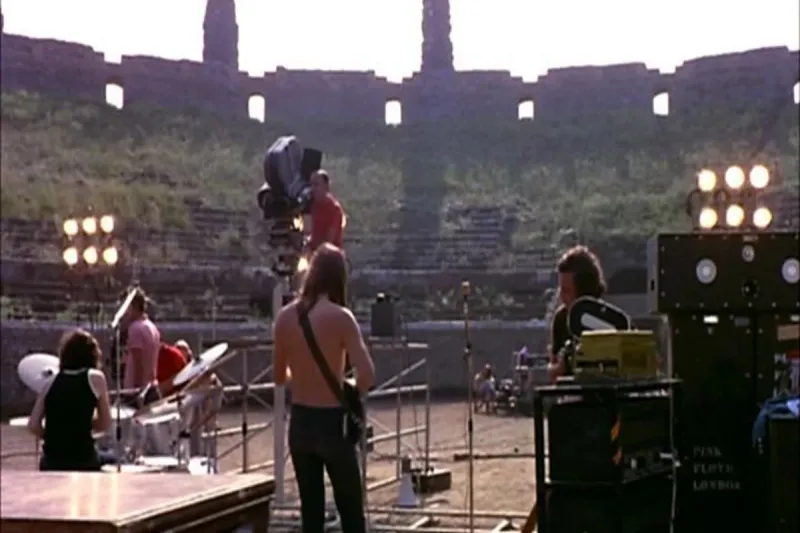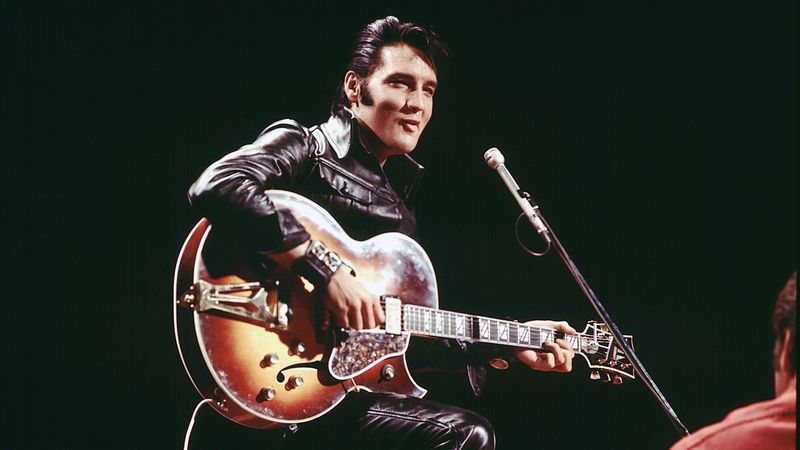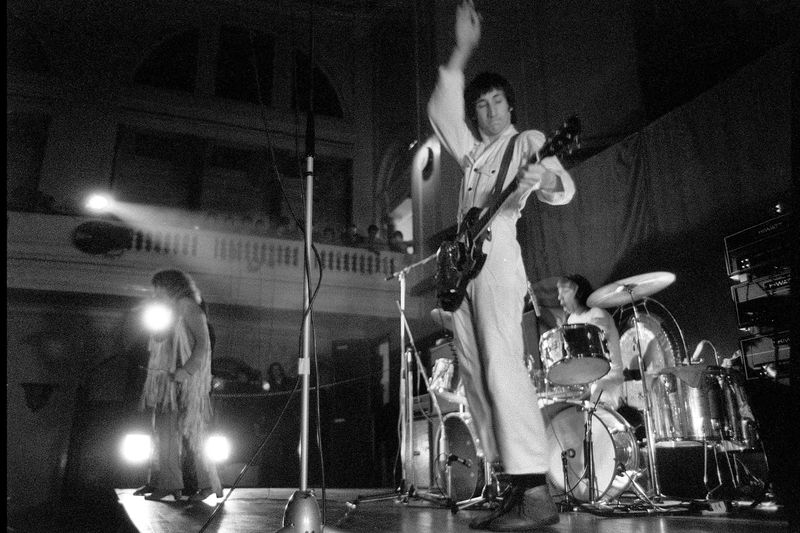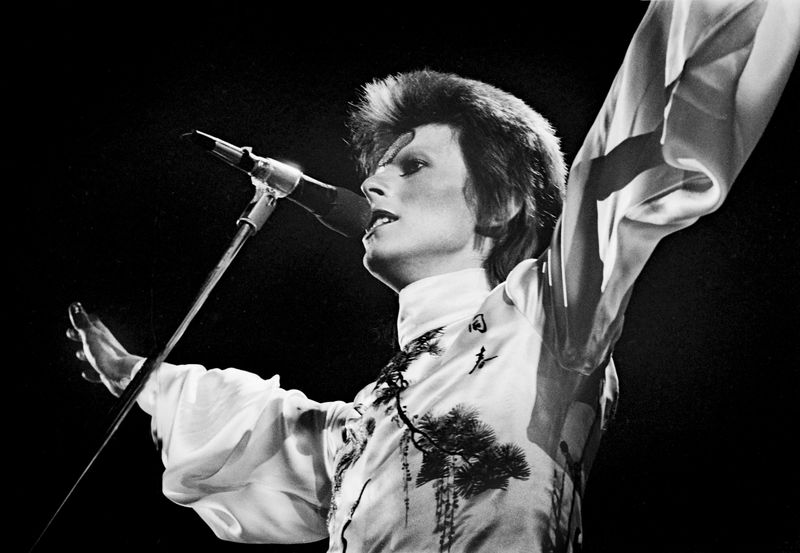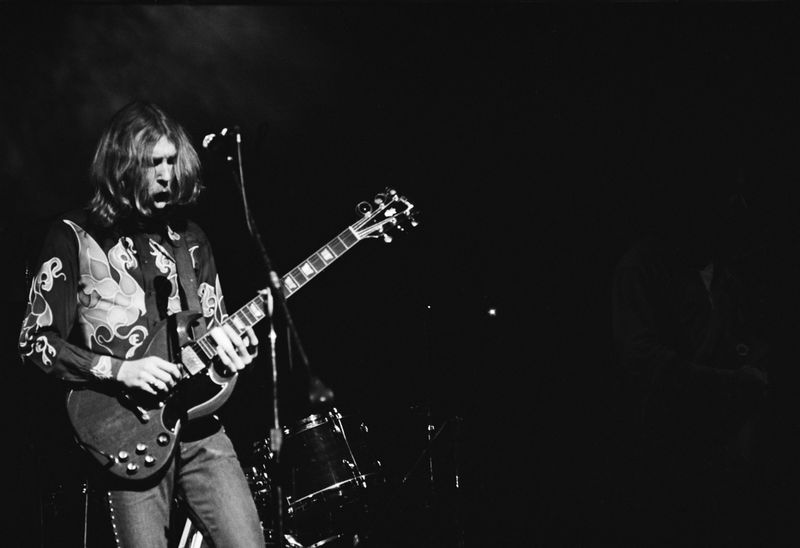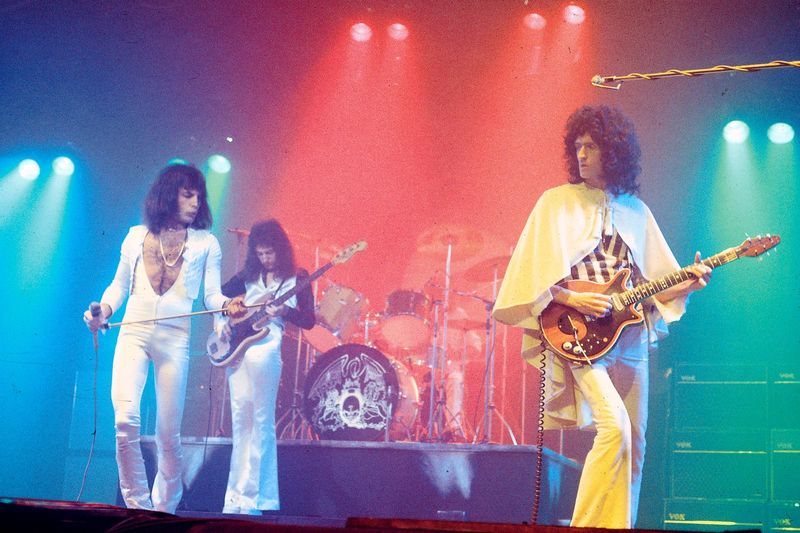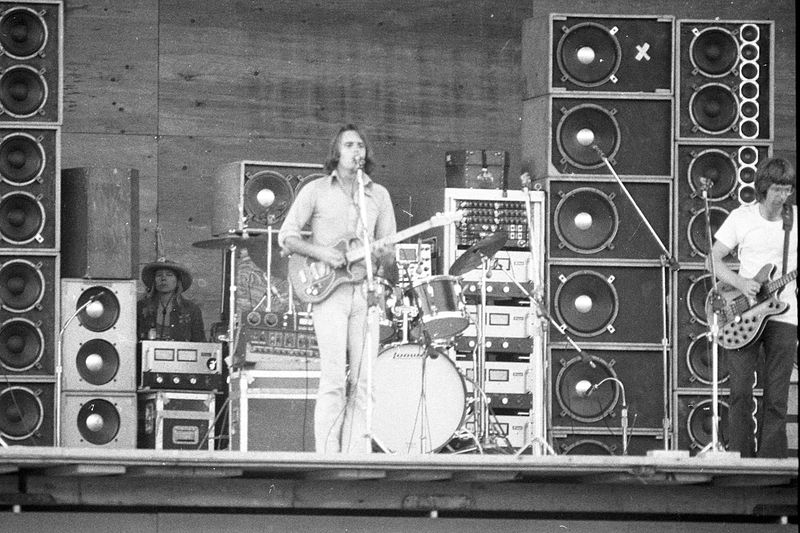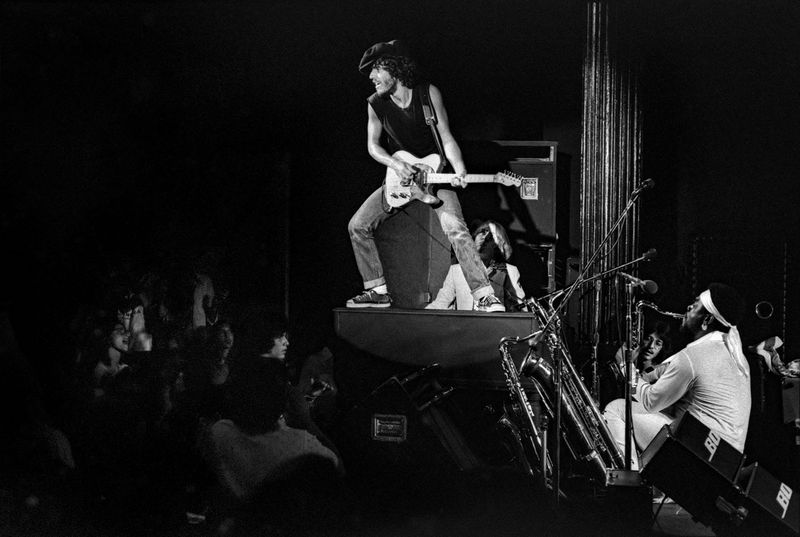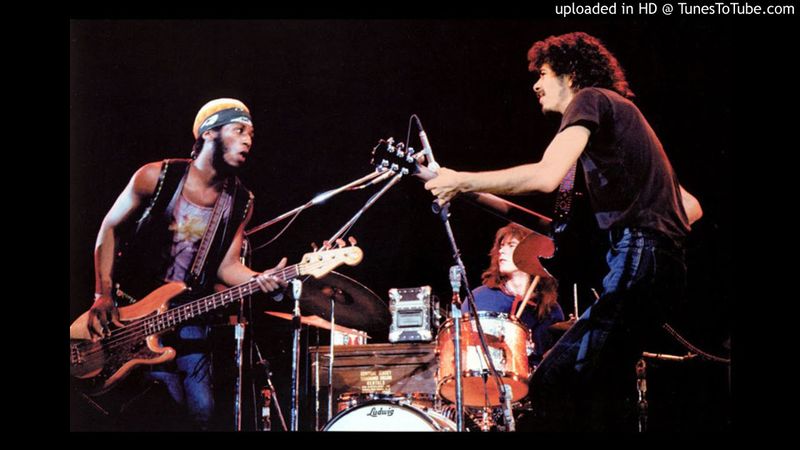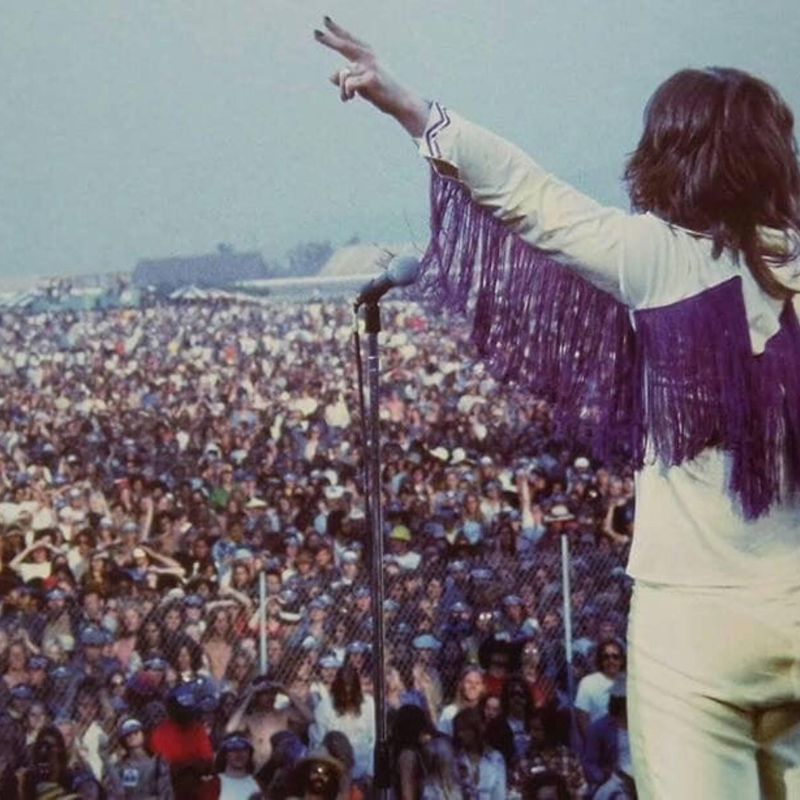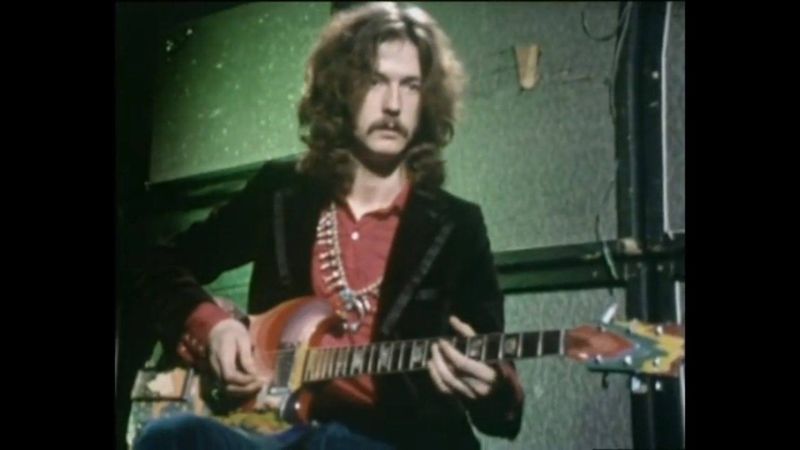Explore the unforgettable rock concerts from the 1960s and 1970s that defined the era and set the stage for music history.
These epic performances were marked by electrifying moments, groundbreaking artistry, and cultural impact. From the Beatles’ iconic stadium show to the fiery spectacle of Jimi Hendrix, each event was a unique chapter in the story of rock.
Delve into the details of 18 legendary concerts that continue to inspire musicians and thrill fans across generations. Feel the energy as we revisit these monumental gatherings of sound and spirit.
1. The Beatles at Shea Stadium (1965)
The Beatles’ Shea Stadium concert was a groundbreaking moment in music history. On August 15, 1965, 55,000 fans packed the stadium, creating an atmosphere that was electric and overwhelming.
The sound of screaming fans was so loud that it nearly drowned out the music, yet the energy was undeniable.
John, Paul, George, and Ringo delivered a performance full of youthful exuberance and charm. The event marked one of the first major stadium rock concerts, setting a precedent for future mega-events.
It highlighted the Beatles’ unmatched popularity and the burgeoning cultural shift of the 1960s.
2. Bob Dylan Goes Electric at Newport Folk Festival (1965)
Bob Dylan’s decision to play electric at the Newport Folk Festival in 1965 was a pivotal moment in music history. It was a bold move that shocked folk purists who were accustomed to his acoustic style.
Dylan’s set was met with mixed reactions, but it marked a significant turning point for rock music. By plugging in his guitar, Dylan expanded the possibilities of what rock could become.
His performance was rebellious, innovative, and transformative, leaving an indelible mark on the genre. The boldness of this act continues to inspire artists to push musical boundaries.
3. Jimi Hendrix at Monterey Pop Festival (1967)
Jimi Hendrix’s performance at the Monterey Pop Festival in 1967 was nothing short of legendary. Known for his innovative guitar techniques and flamboyant style, Hendrix’s act culminated in the unforgettable moment when he set his guitar ablaze.
The fire symbolized the intense passion and artistry he brought to the stage. His performance was not only a musical triumph but a cultural statement that solidified his status as a rock icon.
The raw energy and showmanship he exhibited continue to influence musicians today, marking Monterey as a defining moment in rock history.
4. The Rolling Stones at Altamont Speedway (1969)
The Rolling Stones’ concert at Altamont Speedway in 1969 is infamous for the chaotic and tragic events that unfolded. Intended as a free concert to rival Woodstock, it drew a massive crowd but was marred by violence.
The Hell’s Angels, hired to provide security, became involved in altercations with attendees. The atmosphere turned dark, and the day ended tragically with the death of a fan.
Despite the powerful performance by the Stones, the event revealed the darker side of the 1960s counterculture. It remains a pivotal moment in rock history, highlighting both triumph and tragedy.
5. Woodstock (1969)
Woodstock, held in 1969, is often hailed as the mother of all music festivals. It attracted over 400,000 people to a dairy farm in Bethel, New York, creating a cultural phenomenon that defined a generation.
Featuring legendary acts like Jimi Hendrix, Janis Joplin, and The Who, the festival was a celebration of peace, love, and music. Despite logistical challenges and inclement weather, Woodstock became a symbol of the 1960s counterculture movement.
The performances were iconic, and the event’s spirit of unity and social change continues to resonate, marking it as a cornerstone in rock history.
6. The Doors at the Hollywood Bowl (1968)
The Doors’ performance at the Hollywood Bowl in 1968 showcased Jim Morrison’s theatrical prowess and the band’s unique sound. The concert was a synthesis of rock, poetry, and drama, with Morrison at the helm as a captivating frontman.
The outdoor venue provided an ideal backdrop for their mesmerizing performance, which included hits like “Light My Fire” and “The End.”
The energy was palpable, and Morrison’s charismatic stage presence left an indelible impression on those in attendance. This concert remains one of The Doors’ most iconic performances, capturing the essence of their artistic vision.
7. Led Zeppelin at Madison Square Garden (1973)
Led Zeppelin’s 1973 performance at Madison Square Garden was a defining moment in rock history. Captured in the concert film “The Song Remains the Same,” it showcased the band at their creative peak.
Jimmy Page’s legendary guitar riffs, Robert Plant’s powerful vocals, and the band’s tight synergy captivated the audience. The show was a blend of technical prowess and raw energy, highlighting Zeppelin’s dominance in the rock scene.
Their Madison Square Garden concerts remain a testament to their enduring legacy, symbolizing a pinnacle of live rock performance that continues to inspire generations.
8. Pink Floyd at Pompeii (1972)
Pink Floyd’s live performance at the ancient ruins of Pompeii in 1972 was a surreal and groundbreaking event. The band played without an audience, allowing the music to reverberate through the empty amphitheater.
The concert, filmed as a documentary, depicted the band’s ethereal soundscapes set against the haunting backdrop of Pompeii’s ruins. This unique setting enhanced the visual and auditory experience, creating a cult classic that transcended typical concert norms.
Pink Floyd’s performance in Pompeii remains a symbol of innovation and creativity, reflecting their ability to push the boundaries of live music.
9. Elvis Presley’s ’68 Comeback Special
Elvis Presley’s 1968 Comeback Special marked a triumphant return for the King of Rock ‘n’ Roll. After years away from live performances, Elvis took to the stage with renewed vigor and charisma.
Wearing his iconic black leather outfit, he delivered a performance that was raw, energetic, and unforgettable. The special featured a mix of his classic hits and new material, reminding the world of his unparalleled talent.
This performance not only revitalized his career but also reaffirmed his status as a musical legend. Elvis’s Comeback Special remains a pivotal moment in rock history.
10. The Who at Leeds University (1970)
The Who’s performance at Leeds University in 1970 is often hailed as one of the greatest live rock concerts ever. Recorded for the “Live at Leeds” album, the band delivered a set filled with intense energy and technical brilliance.
Pete Townshend’s windmill guitar playing and Keith Moon’s explosive drumming were highlights of a performance that was both raw and electrifying.
The intimate university setting allowed for an unparalleled connection with the audience. “Live at Leeds” captures the essence of The Who’s live prowess, solidifying their reputation as one of rock’s most powerful live acts.
11. David Bowie as Ziggy Stardust at Hammersmith Odeon (1973)
David Bowie’s performance as Ziggy Stardust at Hammersmith Odeon in 1973 marked the dramatic farewell to his iconic persona. The concert was a theatrical spectacle, combining music, fashion, and storytelling.
Bowie’s androgynous style and charismatic stage presence captivated audiences, creating a unique and unforgettable experience. The announcement of Ziggy’s retirement added emotional weight to the already powerful performance.
This show not only highlighted Bowie’s artistic genius but also laid the groundwork for future theatrical rock performances. Ziggy Stardust’s farewell remains a cornerstone in the history of glam rock.
12. Allman Brothers Band at Fillmore East (1971)
The Allman Brothers Band’s performance at Fillmore East in 1971 is celebrated as one of the greatest live rock recordings. Known for their improvisational skills, the band delivered a marathon set that blended rock, blues, and jazz.
The concert was recorded for the iconic “At Fillmore East” album, capturing the band’s dynamic interplay and raw energy.
Duane Allman’s slide guitar and Gregg Allman’s soulful vocals were highlights of a performance that was both intricate and powerful. This legendary show remains a testament to the Allman Brothers’ musical prowess and enduring influence in rock history.
13. Queen at Hammersmith Odeon (1975)
Queen’s 1975 performance at Hammersmith Odeon was a defining moment that showcased their burgeoning stadium-rock prowess. The concert featured a young Queen at the height of their creative powers, delivering a set filled with energy and theatricality.
Freddie Mercury’s magnetic stage presence and Brian May’s distinctive guitar work captivated the audience. The performance was broadcast on TV, further cementing their status as rock icons.
Queen’s blend of operatic rock and showmanship resonated with fans, setting the stage for their future success. This concert remains a landmark event, highlighting their rise in the rock scene.
14. The Grateful Dead at Watkins Glen (1973)
The Grateful Dead’s concert at Watkins Glen in 1973 drew a record-breaking crowd of 600,000, surpassing even Woodstock’s numbers. The massive turnout reflected the band’s deep connection with their fan base and the growing popularity of the festival scene.
Known for their improvisational prowess, the Dead delivered a marathon set that captivated the audience. The concert showcased the band’s musical versatility and sense of community with their fans.
Watkins Glen remains a seminal event in rock history, emphasizing the unique bond between the Grateful Dead and their devoted followers, often referred to as “Deadheads.”
15. Bruce Springsteen at The Bottom Line (1975)
Bruce Springsteen’s 1975 performances at The Bottom Line in New York City marked a turning point in his career. Over ten shows, “The Boss” captivated audiences with his storytelling, energy, and charisma.
The intimate setting of the club allowed for a close connection with the audience, showcasing Springsteen’s talent and passion. These performances helped solidify his status as a rising star in the rock scene.
The Bottom Line shows were instrumental in launching Springsteen into the national spotlight, marking the beginning of his journey to becoming a legendary figure in rock music.
16. Santana at the Fillmore West (1968)
Santana’s performance at the Fillmore West in 1968 was a revelation. Carlos Santana, with his signature guitar style, mesmerized the audience with a blend of Latin-infused rock.
The energy was palpable as the band performed hits like “Soul Sacrifice,” showcasing their unique sound and dynamic rhythms.
This concert not only solidified Santana’s place in rock history but also highlighted the vibrant cultural fusion that characterized much of the late ’60s music scene.
17. Black Sabbath at California Jam (1974)
Black Sabbath’s 1974 performance at California Jam was a thunderous display of heavy metal might. Ozzy Osbourne, with his charismatic stage presence, led the band in front of a crowd of over 200,000.
The band’s powerful sound and dark, enigmatic stage presence captivated the audience. Their set included iconic tracks like “War Pigs” and “Paranoid,” showcasing the band’s influence on the emerging heavy metal genre.
California Jam remains a pivotal event in rock history, highlighting Black Sabbath’s role as pioneers of metal and their enduring impact on the music world.
18. Cream’s Farewell Concert at Royal Albert Hall (1968)
Cream’s farewell concert at London’s Royal Albert Hall in 1968 was a bittersweet event for fans. As one of the first supergroups, Cream was instrumental in the development of blues rock.
The trio, consisting of Eric Clapton, Jack Bruce, and Ginger Baker, delivered an unforgettable performance filled with improvisation and musical innovation.
The concert marked the end of an era for the band but left an indelible mark on rock music, inspiring countless musicians and fans alike.
